At this time of year, and this time of decade, comes the inevitable “lists” of some of the highlights, and possible lowlights, of the year or decade coming to a close.
So who are we to be any different? Time to look at some of the events, programs and people that have stood out for this past decade, in chronological order:
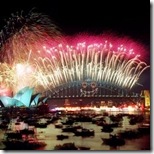 1. 2000 Today/Millennium Live. The worldwide celebration of the new millennium was well covered on TV, from the earliest celebrations in New Zealand and Australia and following the progress of celebrations throughout the world over the next 24 hours. ABC was the Australian participant in the global 2000 Today telecast, and the Nine Network tapped into its worldwide resources to present Millennium Live.
1. 2000 Today/Millennium Live. The worldwide celebration of the new millennium was well covered on TV, from the earliest celebrations in New Zealand and Australia and following the progress of celebrations throughout the world over the next 24 hours. ABC was the Australian participant in the global 2000 Today telecast, and the Nine Network tapped into its worldwide resources to present Millennium Live.
 2. Sydney Olympic Games. The world’s attention was focused on Sydney for two weeks as the city presented the Games of the XXVII Olympiad in September 2000. The opening ceremony, featuring Cathy Freeman (pictured), earned the Seven Network the highest ratings received for any telecast since 1969.
2. Sydney Olympic Games. The world’s attention was focused on Sydney for two weeks as the city presented the Games of the XXVII Olympiad in September 2000. The opening ceremony, featuring Cathy Freeman (pictured), earned the Seven Network the highest ratings received for any telecast since 1969.
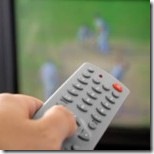 3. Digital TV begins. Beginning on 1 January 2001 with a whimper rather than a bang, digital TV promised widescreen pictures, high-definition, surround sound and new channels. However, the initial roll-out of digital TV into Sydney, Melbourne, Brisbane, Adelaide and Perth came before many retailers had tuners or set top boxes to sell. As a result the launch of digital TV was seen by only a few. Although the original proposal was to have Australia fully converted to digital TV by 2008, this date has now been postponed to 31 December 2013.
3. Digital TV begins. Beginning on 1 January 2001 with a whimper rather than a bang, digital TV promised widescreen pictures, high-definition, surround sound and new channels. However, the initial roll-out of digital TV into Sydney, Melbourne, Brisbane, Adelaide and Perth came before many retailers had tuners or set top boxes to sell. As a result the launch of digital TV was seen by only a few. Although the original proposal was to have Australia fully converted to digital TV by 2008, this date has now been postponed to 31 December 2013.
 4. Big Brother. An invention of Dutch TV producer John de Mol in the late-1990s, Big Brother had made itself known in a number of countries before being unleashed on Australia in 2001. All commercial networks fought to gain access to the format, but it was Ten that was to succeed and would use Big Brother as its flagship program in reaching out to the advertiser-friendly youth demographic with the reality genre. The program turned host Gretel Killeen (pictured, with contestant Merlin Luck) into a household name and created short-term suburban heroes out of some of its contestants. Some of the show’s more controversial moments attracted plenty of scorn from the public, added words like “turkey slap” into the mainstream, and Prime Minister John Howard at one time demanding the show be taken off the air. Falling ratings led to the show finally coming to an end in Australia in 2008.
4. Big Brother. An invention of Dutch TV producer John de Mol in the late-1990s, Big Brother had made itself known in a number of countries before being unleashed on Australia in 2001. All commercial networks fought to gain access to the format, but it was Ten that was to succeed and would use Big Brother as its flagship program in reaching out to the advertiser-friendly youth demographic with the reality genre. The program turned host Gretel Killeen (pictured, with contestant Merlin Luck) into a household name and created short-term suburban heroes out of some of its contestants. Some of the show’s more controversial moments attracted plenty of scorn from the public, added words like “turkey slap” into the mainstream, and Prime Minister John Howard at one time demanding the show be taken off the air. Falling ratings led to the show finally coming to an end in Australia in 2008.
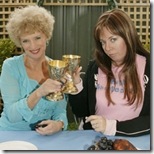 5. Kath And Kim. Although the ‘high maintenance’ Kath Day (Jane Turner), her ‘hornbag’ daughter Kimberley Craig nee Day (Gina Riley) and Kim’s second-best friend Sharon Strzelecki (Magda Szubanski) were creations of the 1990s, featuring in sketch comedy shows Big Girls Blouse and Something Stupid, they got a new lease of life when ABC took up the show with eight half-hour episodes going to air in 2002. Kath And Kim gave ABC some of its highest ever ratings over its three-series run and the show added a number of words and phrases into the language – “look at moiye”, “c’ardonnay”, “foxy morons” and “muffin top”, just to name a few – and even scored an AFI award for Best TV Drama! Kath And Kim then led to a Christmas-themed telemovie, Da Kath And Kim Code, before the Seven Network took over the rights, producing a top-rating fourth series in 2007. The concept was even picked up by the American NBC network to be re-made for the US market, a feat rarely achieved by any Australian series.
5. Kath And Kim. Although the ‘high maintenance’ Kath Day (Jane Turner), her ‘hornbag’ daughter Kimberley Craig nee Day (Gina Riley) and Kim’s second-best friend Sharon Strzelecki (Magda Szubanski) were creations of the 1990s, featuring in sketch comedy shows Big Girls Blouse and Something Stupid, they got a new lease of life when ABC took up the show with eight half-hour episodes going to air in 2002. Kath And Kim gave ABC some of its highest ever ratings over its three-series run and the show added a number of words and phrases into the language – “look at moiye”, “c’ardonnay”, “foxy morons” and “muffin top”, just to name a few – and even scored an AFI award for Best TV Drama! Kath And Kim then led to a Christmas-themed telemovie, Da Kath And Kim Code, before the Seven Network took over the rights, producing a top-rating fourth series in 2007. The concept was even picked up by the American NBC network to be re-made for the US market, a feat rarely achieved by any Australian series.
 6. Australian Idol. When it was announced that Network Ten was to adopt the Pop Idol franchise in Australia, there were cries that Australia had already ‘been there, done that’ with the Seven Network’s Popstars (2000-2002). But in launching Australian Idol on the back of Big Brother during 2003, Ten had a new reality-themed hit on its hands and a couple of ‘70s pop idols, Mark Holden and Marcia Hines, were given a new profile as part of the judging panel. The show transformed Ian ‘Dicko’ Dickson from record producer to media celebrity and even gave serial breakfast radio pest Kyle Sandilands a shot at the TV spotlight before recent radio controversies saw him dropped from the show at the start of the 2009 season. Although Guy Sebastian (pictured) is perhaps the only Australian Idol winner to go onto any sustained pop music career, other contestants to continue some level of pop music stardom after the series include Anthony Callea, Shannon Noll, Ricki-Lee Coulter (who has also co-hosted Australian Idol in later years) and Jessica Mauboy.
6. Australian Idol. When it was announced that Network Ten was to adopt the Pop Idol franchise in Australia, there were cries that Australia had already ‘been there, done that’ with the Seven Network’s Popstars (2000-2002). But in launching Australian Idol on the back of Big Brother during 2003, Ten had a new reality-themed hit on its hands and a couple of ‘70s pop idols, Mark Holden and Marcia Hines, were given a new profile as part of the judging panel. The show transformed Ian ‘Dicko’ Dickson from record producer to media celebrity and even gave serial breakfast radio pest Kyle Sandilands a shot at the TV spotlight before recent radio controversies saw him dropped from the show at the start of the 2009 season. Although Guy Sebastian (pictured) is perhaps the only Australian Idol winner to go onto any sustained pop music career, other contestants to continue some level of pop music stardom after the series include Anthony Callea, Shannon Noll, Ricki-Lee Coulter (who has also co-hosted Australian Idol in later years) and Jessica Mauboy.
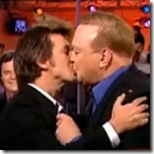 7. Asia Tsunami Telethon. On 26 December 2004, a tsunami triggered by an earthquake under the Indian Ocean wreaked havoc across a number of Asian countries, with the death toll estimated to reach into the hundreds of thousands. With such massive destruction and casualties, Australia’s three commercial networks put aside their rivalries and got together to present a three-hour telethon, simulcast across all three networks. Hosting the event was Andrew O’Keefe (Seven), Eddie McGuire (Nine) and Rove McManus (Ten) with appearances by personalities from all three networks, including Gretel Killeen, Bert Newton, Ray Martin, Melissa Doyle, David Koch and Larry Emdur. The three-hour telethon raised more than $A20 million.
7. Asia Tsunami Telethon. On 26 December 2004, a tsunami triggered by an earthquake under the Indian Ocean wreaked havoc across a number of Asian countries, with the death toll estimated to reach into the hundreds of thousands. With such massive destruction and casualties, Australia’s three commercial networks put aside their rivalries and got together to present a three-hour telethon, simulcast across all three networks. Hosting the event was Andrew O’Keefe (Seven), Eddie McGuire (Nine) and Rove McManus (Ten) with appearances by personalities from all three networks, including Gretel Killeen, Bert Newton, Ray Martin, Melissa Doyle, David Koch and Larry Emdur. The three-hour telethon raised more than $A20 million.
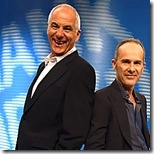 8. Thank God You’re Here. Working Dog Productions, producers of Frontline, The Panel, All Aussie Adventures, A River Somewhere, Funky Squad and movies The Castle and The Dish, came to Network Ten with a new twist on the improvised sketch genre. Thank God You’re Here would place unprepared performers into an established scene and be greeted with the words ‘Thank God you’re here’ before having to improvise their way through the scene without any prior knowledge of what the scene is about. Hosted by Shane Bourne (pictured, with judge Tom Gleisner), Thank God You’re Here became a ratings hit for Network Ten when it launched in 2006. The popularity of the show led to the format being franchised worldwide, with adaptations in countries including the United States, United Kingdom, Russia, Canada, Sweden, Belgium and Italy. After three series on Ten, the show was then picked up by the Seven Network in 2009.
8. Thank God You’re Here. Working Dog Productions, producers of Frontline, The Panel, All Aussie Adventures, A River Somewhere, Funky Squad and movies The Castle and The Dish, came to Network Ten with a new twist on the improvised sketch genre. Thank God You’re Here would place unprepared performers into an established scene and be greeted with the words ‘Thank God you’re here’ before having to improvise their way through the scene without any prior knowledge of what the scene is about. Hosted by Shane Bourne (pictured, with judge Tom Gleisner), Thank God You’re Here became a ratings hit for Network Ten when it launched in 2006. The popularity of the show led to the format being franchised worldwide, with adaptations in countries including the United States, United Kingdom, Russia, Canada, Sweden, Belgium and Italy. After three series on Ten, the show was then picked up by the Seven Network in 2009.
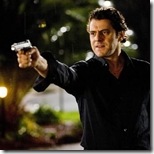 9. Underbelly. Melbourne’s real-life gangland wars of the 1990s to mid-2000s provided the perfect backdrop for a TV series. Adapted from the book Leadbelly, by John Silvester and Andrew Rule, Underbelly debuted in February 2008 – but, ironically, except in Victoria where the series was banned by order of the Supreme Court due to pending trials. With liberal amounts of sex, nudity, coarse language and graphic violence as well as its real-life basis, Underbelly was a ratings hit despite not showing in its home state, although the court later permitted an edited sample of episodes to be shown in Victoria later in the year. At the time of writing the full, unedited version of Underbelly is still banned from broadcasting and sale within the state of Victoria. A second series of Underbelly, sub-titled A Tale Of Two Cities, followed the activities of the underworld drug trade in the 1970s and 1980s. A third series, Underbelly: The Golden Mile, is now in production for 2010, set in Sydney in the early’-‘90s.
9. Underbelly. Melbourne’s real-life gangland wars of the 1990s to mid-2000s provided the perfect backdrop for a TV series. Adapted from the book Leadbelly, by John Silvester and Andrew Rule, Underbelly debuted in February 2008 – but, ironically, except in Victoria where the series was banned by order of the Supreme Court due to pending trials. With liberal amounts of sex, nudity, coarse language and graphic violence as well as its real-life basis, Underbelly was a ratings hit despite not showing in its home state, although the court later permitted an edited sample of episodes to be shown in Victoria later in the year. At the time of writing the full, unedited version of Underbelly is still banned from broadcasting and sale within the state of Victoria. A second series of Underbelly, sub-titled A Tale Of Two Cities, followed the activities of the underworld drug trade in the 1970s and 1980s. A third series, Underbelly: The Golden Mile, is now in production for 2010, set in Sydney in the early’-‘90s.
 10. Masterchef Australia. When Network Ten announced that it had purchased the Masterchef franchise as the replacement for Big Brother, nobody thought the show would take off. Who would watch a cooking show, six nights a week? What sort of drama or human emotion can be dragged out over a hot stove over thirteen weeks? Doesn’t keeping the contestants in a share house look a bit much like a Big Brother-rip off? What was Australia’s self-proclaimed youth network thinking? But within weeks of its debut, Masterchef Australia was showing to prove its critics and doubters wrong. There was, it seemed, plenty of human emotion and drama to be played out as contestants slaved over hot stoves in preparing high-end cuisine to achieve the status of being awarded Australia’s first Masterchef, with $100,000 prizemoney, further professional tuition and a book publishing deal. Some well-considered casting and a charismatic threesome, chefs George Calombaris and Gary Mehigan and food critic Matt Preston (pictured), turned out a show that gave Ten the highest ratings it had seen at 7.00pm for many years and turned food preparation into a spectator sport. The show’s grand finale was watched by over 3 million viewers (OzTAM, 5 cities), making it the highest rating non-sports telecast since OzTAM records started in 2001. The success of Masterchef Australia has led to a celebrity version being played out this year, and 2010 will see a second series of Masterchef Australia and, apparently, a junior contest as well.
10. Masterchef Australia. When Network Ten announced that it had purchased the Masterchef franchise as the replacement for Big Brother, nobody thought the show would take off. Who would watch a cooking show, six nights a week? What sort of drama or human emotion can be dragged out over a hot stove over thirteen weeks? Doesn’t keeping the contestants in a share house look a bit much like a Big Brother-rip off? What was Australia’s self-proclaimed youth network thinking? But within weeks of its debut, Masterchef Australia was showing to prove its critics and doubters wrong. There was, it seemed, plenty of human emotion and drama to be played out as contestants slaved over hot stoves in preparing high-end cuisine to achieve the status of being awarded Australia’s first Masterchef, with $100,000 prizemoney, further professional tuition and a book publishing deal. Some well-considered casting and a charismatic threesome, chefs George Calombaris and Gary Mehigan and food critic Matt Preston (pictured), turned out a show that gave Ten the highest ratings it had seen at 7.00pm for many years and turned food preparation into a spectator sport. The show’s grand finale was watched by over 3 million viewers (OzTAM, 5 cities), making it the highest rating non-sports telecast since OzTAM records started in 2001. The success of Masterchef Australia has led to a celebrity version being played out this year, and 2010 will see a second series of Masterchef Australia and, apparently, a junior contest as well.
Of course, this is far from being an exhaustive list of highlights, or lowlights, of the decade. What would you rate as your standout highlights of the decade?
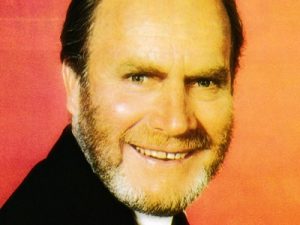
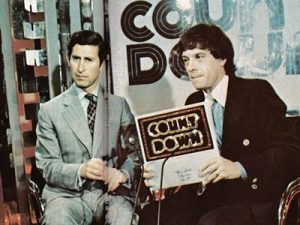
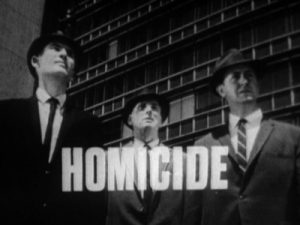
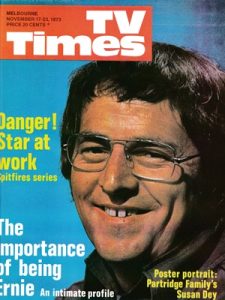
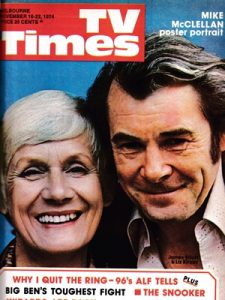
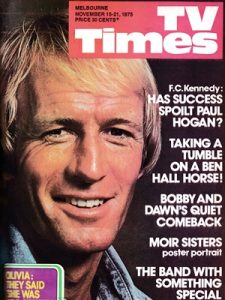
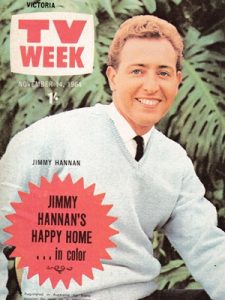
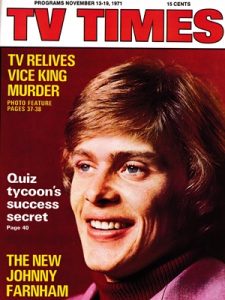
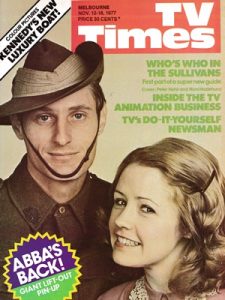
I have been thinking about this and can't really come up with anything. Amongst the dross has been some wonderful television. So, I will just make a special mention for The Circuit. It deserves a bigger audience, which ABC could deliver.